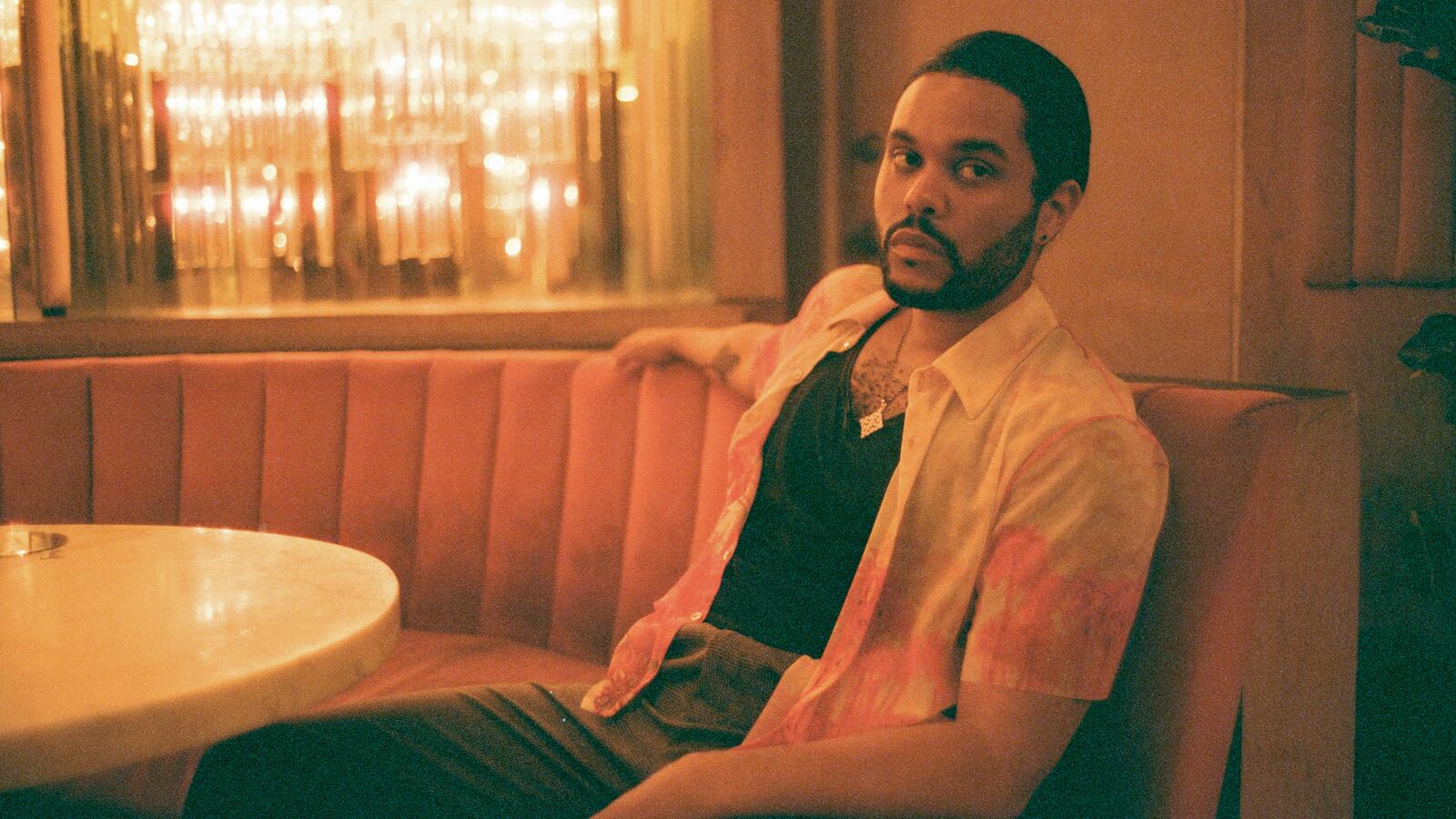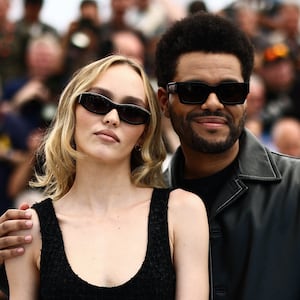The Weeknd, given name Abel Tesfaye, addresses the backlash to a controversial sex scene in the second episode of The Idol in a new interview with GQ published Tuesday.
Many viewers were deeply put off by the scene, which finds pop star Jocelyn (Lily-Rose Depp) masturbating blindfolded while Tesfaye’s character, Tedros the mysterious nightclub owner, watches impassively, saying things like “I want to grab you by the ass while I suffocate you with my cock.”
“I will never see The Weeknd the same after this,” one person declared.
For months, The Weeknd stuck to his habit of blithely dismissing any journalists or critics who assessed that The Idol, which he co-created with Euphoria czar Sam Levinson, was akin to, as one source put it to Rolling Stone, a “rape fantasy that any toxic man would have.”
“I’ve been judged since the beginning,” The Weeknd shrugged to Interview in April. “My stuff’s always kind of been provocative.”
Now, however, The Weeknd seems to be changing his strategy. Rather than maintaining the take-it-or-leave-it, we’re provocateurs energy that he and Levinson have been favoring—“When my wife read me the [Rolling Stone] article, I looked at her and I said, ‘I think we’re about to have the biggest show of the summer,’” Levinson said at Cannes—his GQ interview smacks of a man scrambling to explain that he’s not a power-mad pervert, he’s just playing one on TV.
“There’s nothing sexy about” the Episode 2 sex scene, The Weeknd insisted to GQ, continuing, “When we use Basic Instinct as a reference, we’re using Verhoeven. Verhoeven is the king of ’90s satire thriller—yes, there’s moments of ‘sexy’ in his films but there are other moments that are very cheesy and hilarious. However you’re feeling watching that scene, whether it’s discomfort, or you feel gross, or you feel embarrassed for the characters. It’s all those emotions adding up to: this guy is in way over his head, this situation is one where he is not supposed to be here.”
But, months ago, a source told Rolling Stone that The Weeknd and Levinson’s overhaul of the show was, in part, due to the “Blinding Lights” singer wanting “one show that was all about him.”
“Abel came to us with a pitch,” Levinson told W Magazine in May. “He said something that I’ll always remember: ‘If I wanted to start a cult, I could.’”
“What he meant is that his fans were so loyal and devoted that they would follow him anywhere,” Levinson added. “That was the germ of the idea for The Idol: what happens when a pop star falls for the wrong guy and no one speaks up.”
So which is it—is the Tedros character “way over his head,” as The Weeknd put it today to GQ; a person with “nothing really mysterious or hypnotizing about him?”
Or is he a figure, invented by The Weeknd and inspired by his own persona, that’s so alluring, and totally in control of his own persuasive powers, that a vulnerable woman can’t help but to fall under his spell?
There’s nothing wrong with conceiving a bad guy character that’s based on yourself—but if you’ve decided to push the envelope by making a show that purports not to differentiate between appropriate and inappropriate desire, don’t suddenly start arguing that, no, your sex-charged, sexy show wasn’t supposed to be sexy in that one moment.
It’s spineless, and there’s no such thing as a halfway provocateur.







